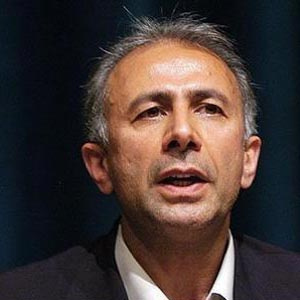The United States: Searching for a New International Security Regime
By Ebrahim Mottaqi.

Beginning on May 3, 2010, the United Nations will host the Review Conference of the Parties to the Treaty on the Non-Proliferation of Nuclear Weapons (NPT) in New York City. While many believe the Nuclear Security Summit held by the U.S. a few weeks ago in essence targeted Iran, it remains to be seen how much attention Iran will receive in the upcoming conference.
From the early months of the year 2000, American security experts, pundits, and specialists began publishing articles and opinion pieces on the new U.S. nuclear policy. The bottom line of most discussions was that a renewed trend of nuclear arms proliferation is taking place outside the U.S. zone of influence—a trend that should be forestalled. Thomas Schelling’s iconic article, “Nuclear Disorder”, published in Foreign Affairs, heralded the emergence of a new concept in the U.S. security discourse.
The cumulative effect of Schelling’s vantage point and his stature in U.S. security decision-making circles, the meaningful title of the article, the prestige of the journal in which it appeared (and a large number of other papers appearing elsewhere in the same vein) fertilized global public opinion, leading it to engage with a new concept, namely that of ‘nuclear security’.
Such efforts were in fact the lead-in to the Nuclear Posture Review (or NPR). The cornerstone of this document is that political units that embark on nuclear proliferation will not be given the satisfaction of a negative guarantee. Quite the opposite—U.S. threats against these units will become more serious. The signing of the Strategic Arms Reduction Treaty (START) with Russia, and the holding of the Nuclear Security Conference were in fact America’s warning to those political units.
U.S. has clearly adopted a new approach towards nuclear security. Measures taken so far by Washington are actually helping it to develop a new international security regime. Security policies and the Obama administration’s tactics prove that the United States is aiming to realize its strategic goals via new international regimes. In other words, the Americans are trying to pursue their nuclear security goals through synergy. START II, the NPR, and the Nuclear Security Summit in Washington all served as preludes to the May 2010 NPT review conference in New York. If the Americans manage to convince other countries present to comply with a new set of IAEA safeguards, their strategic objectives in nuclear security move one step closer to realization.
Ebrahim Mottaqi is professor of Tehran University and Iran-U.S. affairs analyst.
From the early months of the year 2000, American security experts, pundits, and specialists began publishing articles and opinion pieces on the new U.S. nuclear policy. The bottom line of most discussions was that a renewed trend of nuclear arms proliferation is taking place outside the U.S. zone of influence—a trend that should be forestalled. Thomas Schelling’s iconic article, “Nuclear Disorder”, published in Foreign Affairs, heralded the emergence of a new concept in the U.S. security discourse.
The cumulative effect of Schelling’s vantage point and his stature in U.S. security decision-making circles, the meaningful title of the article, the prestige of the journal in which it appeared (and a large number of other papers appearing elsewhere in the same vein) fertilized global public opinion, leading it to engage with a new concept, namely that of ‘nuclear security’.
Such efforts were in fact the lead-in to the Nuclear Posture Review (or NPR). The cornerstone of this document is that political units that embark on nuclear proliferation will not be given the satisfaction of a negative guarantee. Quite the opposite—U.S. threats against these units will become more serious. The signing of the Strategic Arms Reduction Treaty (START) with Russia, and the holding of the Nuclear Security Conference were in fact America’s warning to those political units.
U.S. has clearly adopted a new approach towards nuclear security. Measures taken so far by Washington are actually helping it to develop a new international security regime. Security policies and the Obama administration’s tactics prove that the United States is aiming to realize its strategic goals via new international regimes. In other words, the Americans are trying to pursue their nuclear security goals through synergy. START II, the NPR, and the Nuclear Security Summit in Washington all served as preludes to the May 2010 NPT review conference in New York. If the Americans manage to convince other countries present to comply with a new set of IAEA safeguards, their strategic objectives in nuclear security move one step closer to realization.
Ebrahim Mottaqi is professor of Tehran University and Iran-U.S. affairs analyst.

